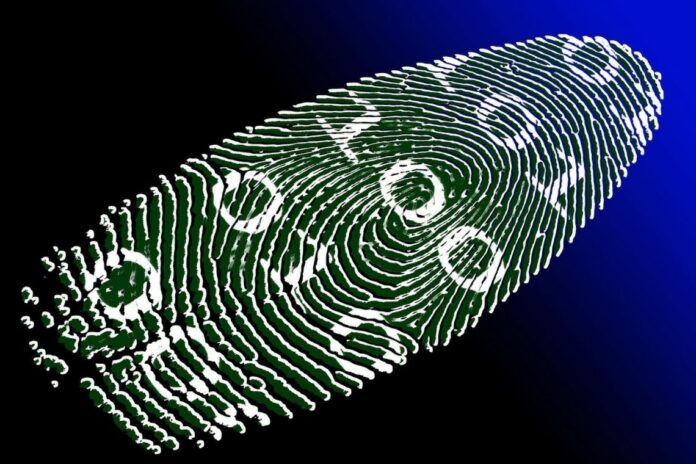Brazil has embarked on a groundbreaking journey into the world of digital identification, with the launch of a blockchain-based national ID program set to transform the lives of more than 214 million citizens.
Fueled by the security and decentralization of blockchain technology, this initiative promises to revolutionize identity verification and streamline administrative processes across the country.
Summary
Brazil launches Blockchain-based digital ID:
Brazil is taking a significant leap forward in digital identity with the launch of its innovative national identity program, based on blockchain technology.
This groundbreaking initiative is set to transform the way more than 214 million Brazilians access and manage their identity documents, marking a pivotal moment in the country’s journey toward secure and efficient digital identification.
In this article we delve into the specifics of Brazil’s blockchain-based digital identification program, exploring its significance, the technology behind it, and its potential impact on various sectors.
The power of blockchain in digital identification
The foundation of Brazil’s new national identity program rests on the innovative use of blockchain technology.
Rio de Janeiro, Goiás and Paraná are poised to become pioneers in this endeavor as they prepare to issue blockchain-based identification documents.
This development is facilitated by a private blockchain system developed by Serpro, Brazil‘s national data processing service. What distinguishes blockchain as an ideal technology for this project are its inherent qualities of immutability and decentralization.
The immutability of blockchain ensures that once data is recorded on the chain, it cannot be altered or tampered with, providing an unprecedented level of security for personal information.
In addition, decentralization eliminates the need for a single central authority, distributing the responsibility for identity verification throughout the network and further enhancing security.
Alexandre Amorim, president of Serpro, stresses that blockchain technology is key to safeguarding personal information and preventing fraud. The use of b-Cadastros‘ blockchain platform increases the security and reliability of the National Identity Card project, he explains.
Key objectives of Brazil’s blockchain ID program
The Brazilian government has outlined several key goals for its digital identity program, demonstrating its commitment to improving security and streamlining administrative processes.
One of the main goals is to combat organized crime more effectively by establishing a robust and tamper-proof system for identity verification.
With the capabilities of blockchain, the government can significantly reduce the risks associated with identity theft and fraudulent activities.
Another critical aspect of this initiative is the promotion of collaboration across government sectors.
By adopting blockchain-based digital IDs, different agencies can seamlessly access and verify the identities of individuals, promoting efficient information sharing and cooperation.
This collaborative approach promises to improve public services and provide a smoother experience for Brazilian citizens.
In addition, Brazil aims to simplify access to various services for its citizens.
Whether it is access to health care, education or financial services, blockchain-based digital IDs can act as a universal key, enabling individuals to interact with government and private sector services more conveniently and securely.
The broader regional context
Brazil’s foray into blockchain-based digital IDs aligns with a broader trend in the region.
Buenos Aires, Argentina, recently introduced a similar initiative, allowing residents to access their identity documents through digital wallets.
This demonstrates the growing recognition of blockchain’s potential to revolutionize identity verification in South America.
In addition, Brazil’s efforts to unify the issuance of identity documents in its nearly 30 states reflect its commitment to creating a cohesive and secure national identity system.
The adoption of blockchain technology is a significant step toward achieving this goal by enabling secure data exchange between the Internal Revenue Service and various government departments.
An eye to the future: the Drex digital currency project
In addition to pioneering efforts in the field of digital identity, Brazil is making strides in blockchain and digital finance with the Drex Digital Currency project.
This ambitious initiative is set to reshape the country’s financial landscape and has attracted considerable attention both domestically and internationally.
The central bank’s (CBDC) digital currency, known as Drex, represents Brazil’s proactive approach to modernizing its financial infrastructure. The Drex aims to expand access to capital for businesses through an innovative tokenization system.
By digitizing financial activities and transactions, this CBDC promises to improve financial inclusiveness and efficiency while reducing dependence on traditional banking infrastructure.
A major strength of Drex lies in its potential to facilitate faster and more secure cross-border transactions. By leveraging blockchain technology, Brazil envisions a future in which international payments and trade become seamless and cost-effective.
This could open new doors to global economic cooperation and trade partnerships, positioning Brazil as a hub for digital finance innovation in the region.
The challenges of the Drex project
However, it is essential to recognize that the Drex project has not been without its challenges.
Local developers have expressed concerns about the possibility of a central authority exercising significant control over Drex, including the ability to freeze funds or change balances.
These concerns highlight the need for careful governance and transparency in the development and deployment of digital currencies.
As Brazil continues to navigate the complexities of digital finance and blockchain, the Drex digital currency project remains a point of interest.
Its success could usher in a new era of financial accessibility and connectivity, not only in Brazil but also globally.
In the coming years, the evolution of Drex will no doubt be closely watched by financial experts, policymakers, and blockchain enthusiasts as it seeks to redefine the country’s financial landscape.
Conclusions
Brazil’s launch of a blockchain-based digital identity program marks a significant milestone in the country’s technological evolution.
By harnessing the power of blockchain, Brazil is poised to strengthen security, streamline administrative processes and improve the overall experience of its citizens.
This initiative also underscores the growing recognition of blockchain’s potential in shaping the future of identity verification and digital finance in South America.
As the program expands across the country, it will undoubtedly serve as a model for other nations seeking to leverage blockchain technology for similar purposes, promoting a more secure and connected world.




